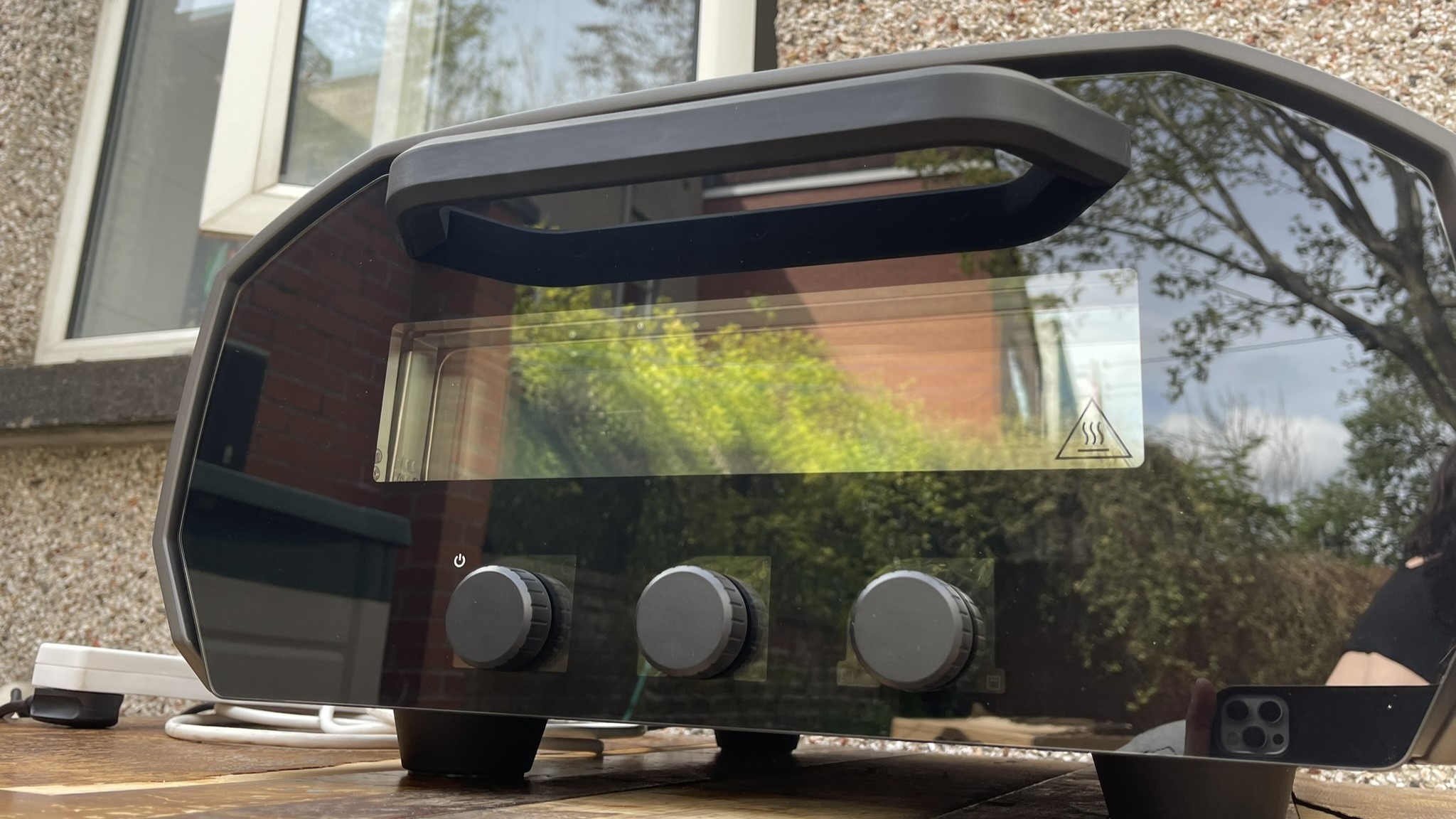
To live in a time where we can make stonebaked pizzas at home is a wonderful thing. This has long been something that requires a huge stone oven that most households wouldn't be able to accomodate.
Since then, we've learned how to achieve similar results using a compact burner and some wood, gas or charcoal. But now, the Ooni Volt 12 allows us to cook those same, stonebaked pizzas using an appliance that can even be used indoors.
Ooni marketed the Volt 12 as the world's first indoor and outdoor pizza oven. While it may not necessarily be the first (as any cheap electric pizza oven can be taken outdoors), it certainly is an impressive feat to be able to cook authentic, stonebaked pizzas using only electricity.
I'm sure many pizza lovers, like me, were sceptical of whether the Volt 12 could match the quality of traditional pizzas. So, I put it to the test to see whether or not it's too good to be true.
And while you're looking for new outdoor cookers, be sure to check out the best gas grills.
Ooni Volt 12: Price & availability
At around $899 / £799, the Volt 12 is Ooni's most expensive pizza oven to date. It's the only pizza oven with electrical components, so it's no surprise that it's going to cost a little more. You're essentially paying for convenience and minimal running costs too, as the Volt 12 requires no wood, gas or charcoal fuel.
Ooni were kind enough to send the Perforated Pizza Peel, Professional Pizza Cutter Wheel, Bamboo Pizza Peel, and Ooni: Cooking with Fire Cookbook. Unless you already have these accessories, I'd personally recommend that they're essential with the pizza oven (although you may not need the cookbook if you're familiar with pizza baking). All in, this set currently retails at $1,039 / £929.
Ooni's pizza ovens start from $299 / £299, so the Volt 12 is a bit more of an investment. While the features and convenience may justify the price tag, it does sadly make it unaffordable for many.
You can find the Ooni Volt 12 online at Ooni, Amazon, BBQGuys and Williams-Sonoma.
Score: 4 out of 5. Expensive, but with much lower running costs.
Ooni Volt 12: Setup
Everything arrived in two boxes: one for the various accessories and cookbook, another for the oven itself. I wasn't expecting the box to be so big and heavy, considering the small size of other Ooni ovens I'd seen. But it turns out that most of that bulk was packaging to protect the pizza oven.
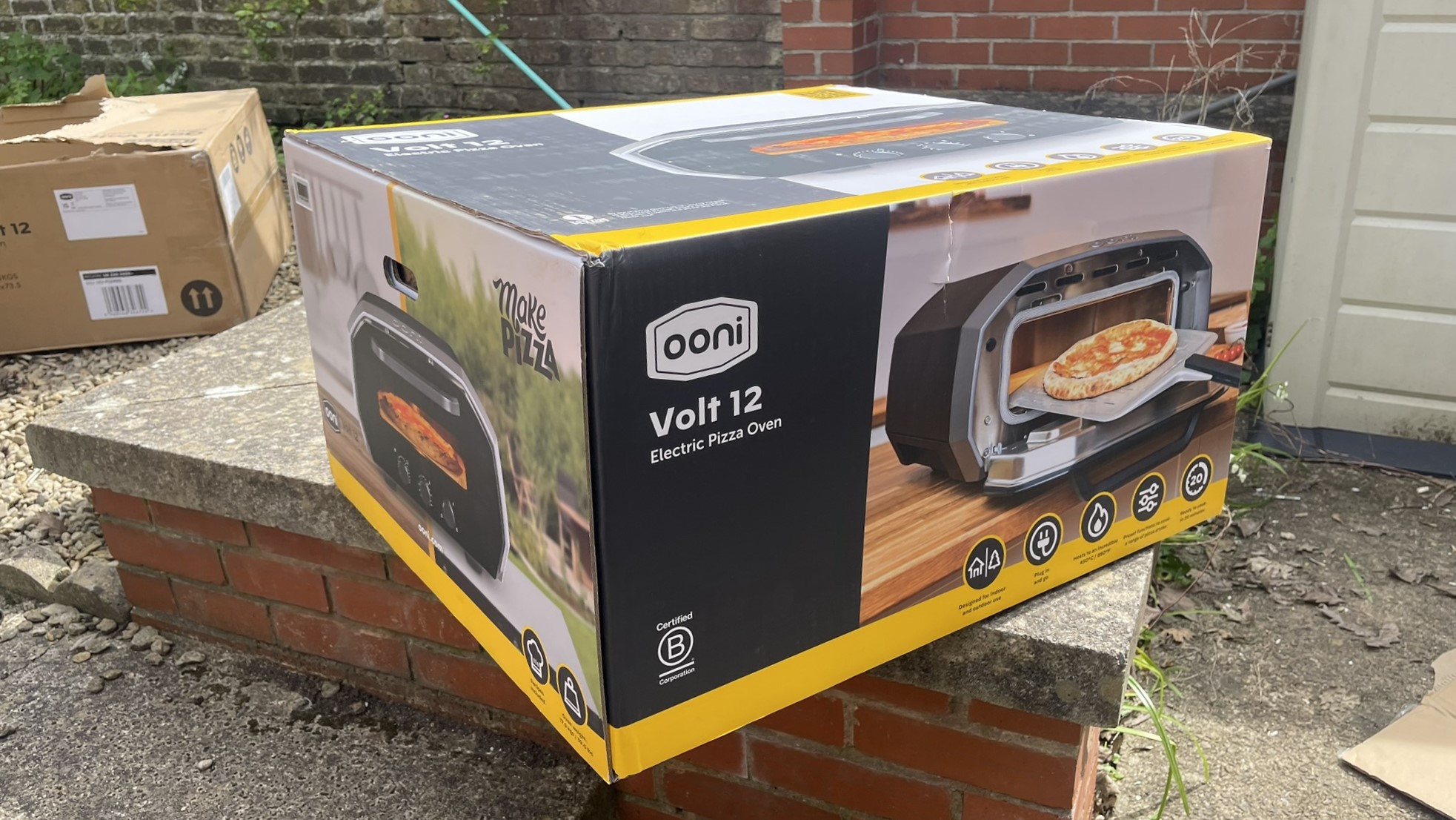
There's very little setup here, owed to the Volt 12's electric design. All I had to do was take the cooking stone out of its protective sleeve and position it in the oven. Then, once you plug the Volt 12 into the mains and turn it on, all it has to do is heat up (which takes around 15-20 minutes).
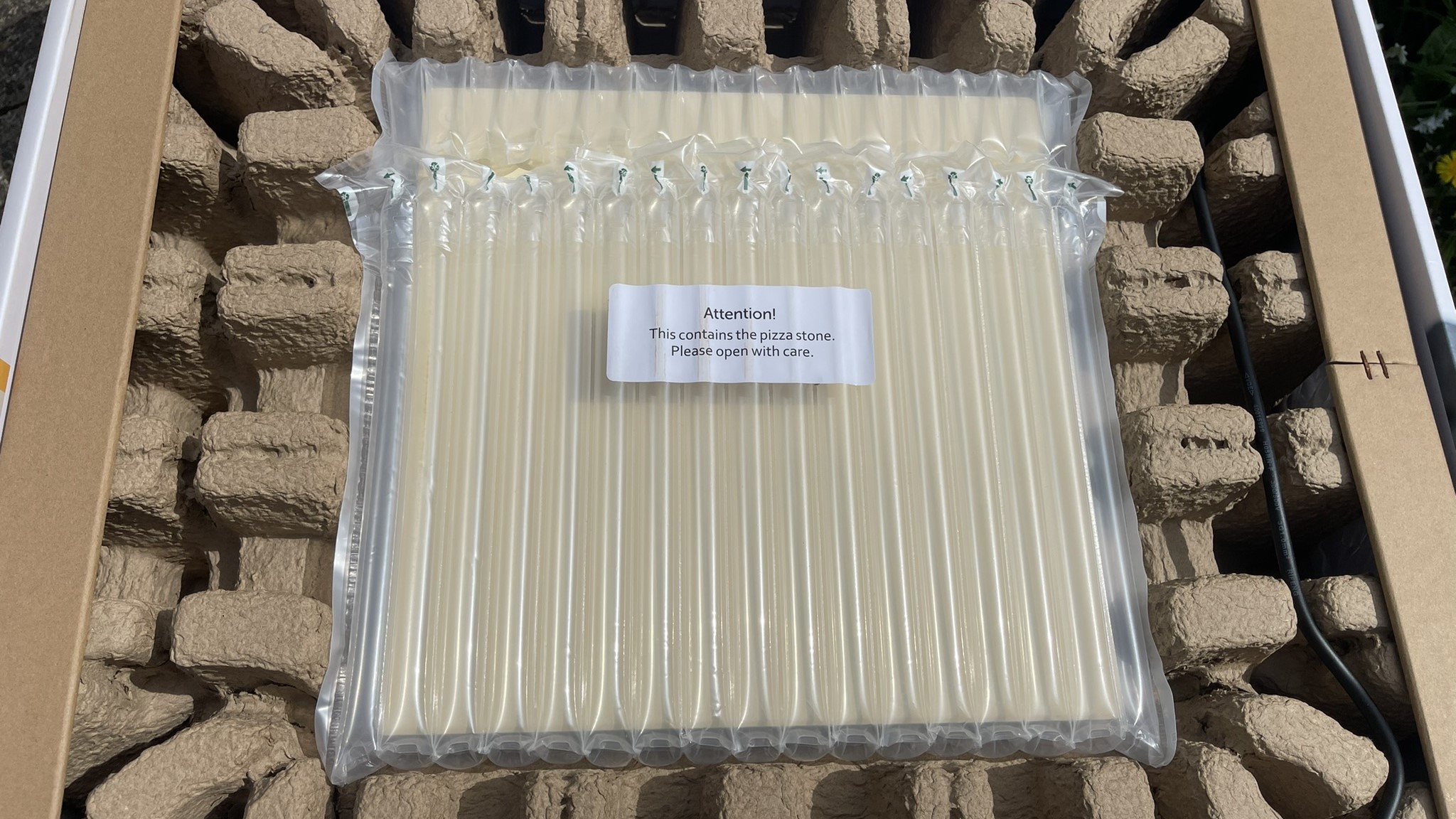
It comes with an essentials guide and a manual/safety instructions booklet. The essentials guide explains everything you need to know about the Volt 12 before getting started - including a quick start guide to get set up, and a list of different pizza styles and their required cooking temperatures/timings.
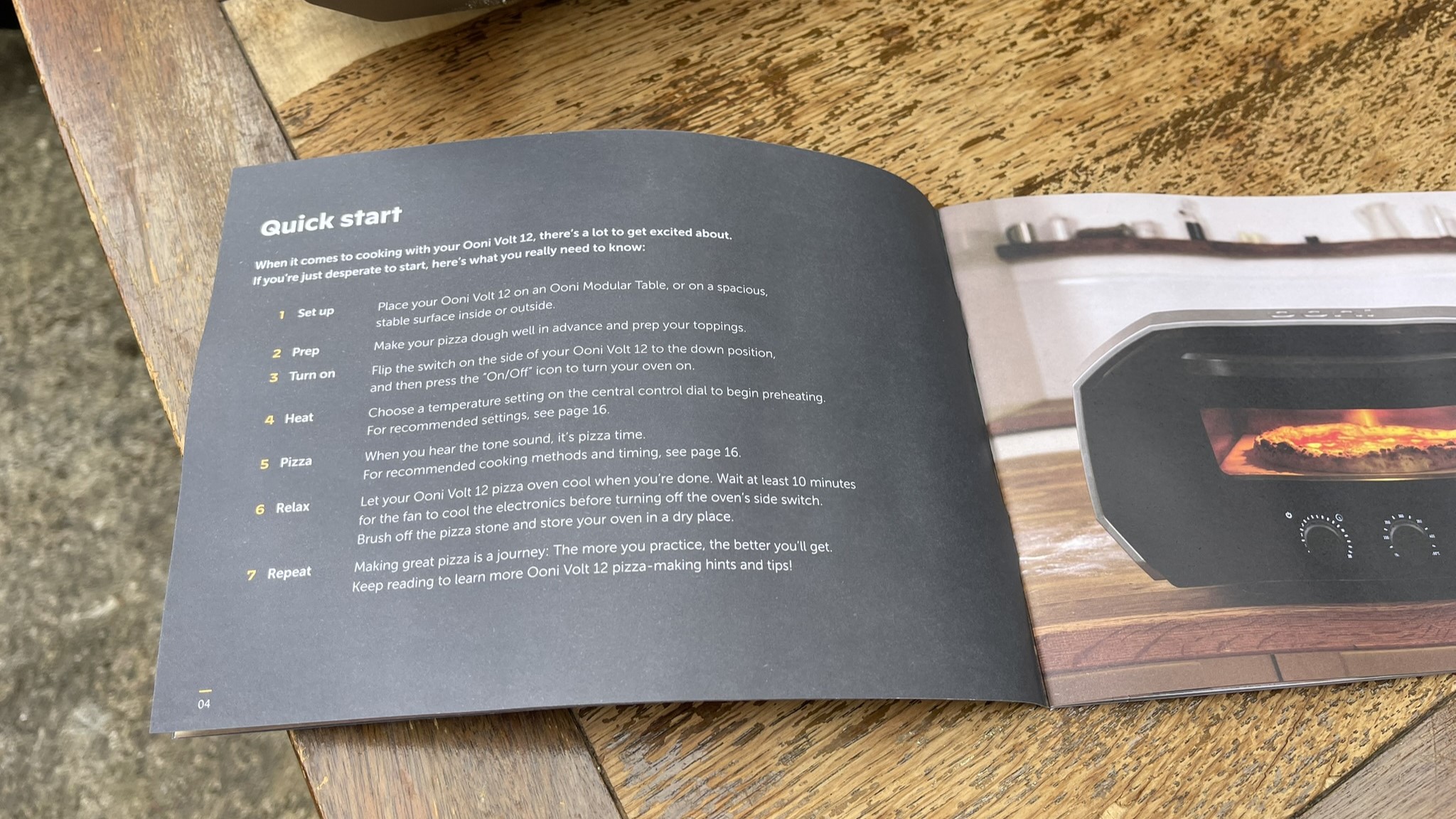
Ooni Fyra 12: Design
It's a robust design, and one that's notably different to the other Oonis. It has no chimney, like the gas-powered Ooni Koda, but it also doesn't have long legs, giving it a more round and sturdy aesthetic. You can tell it has more components than other Ooni ovens as it's particularly more weighty.
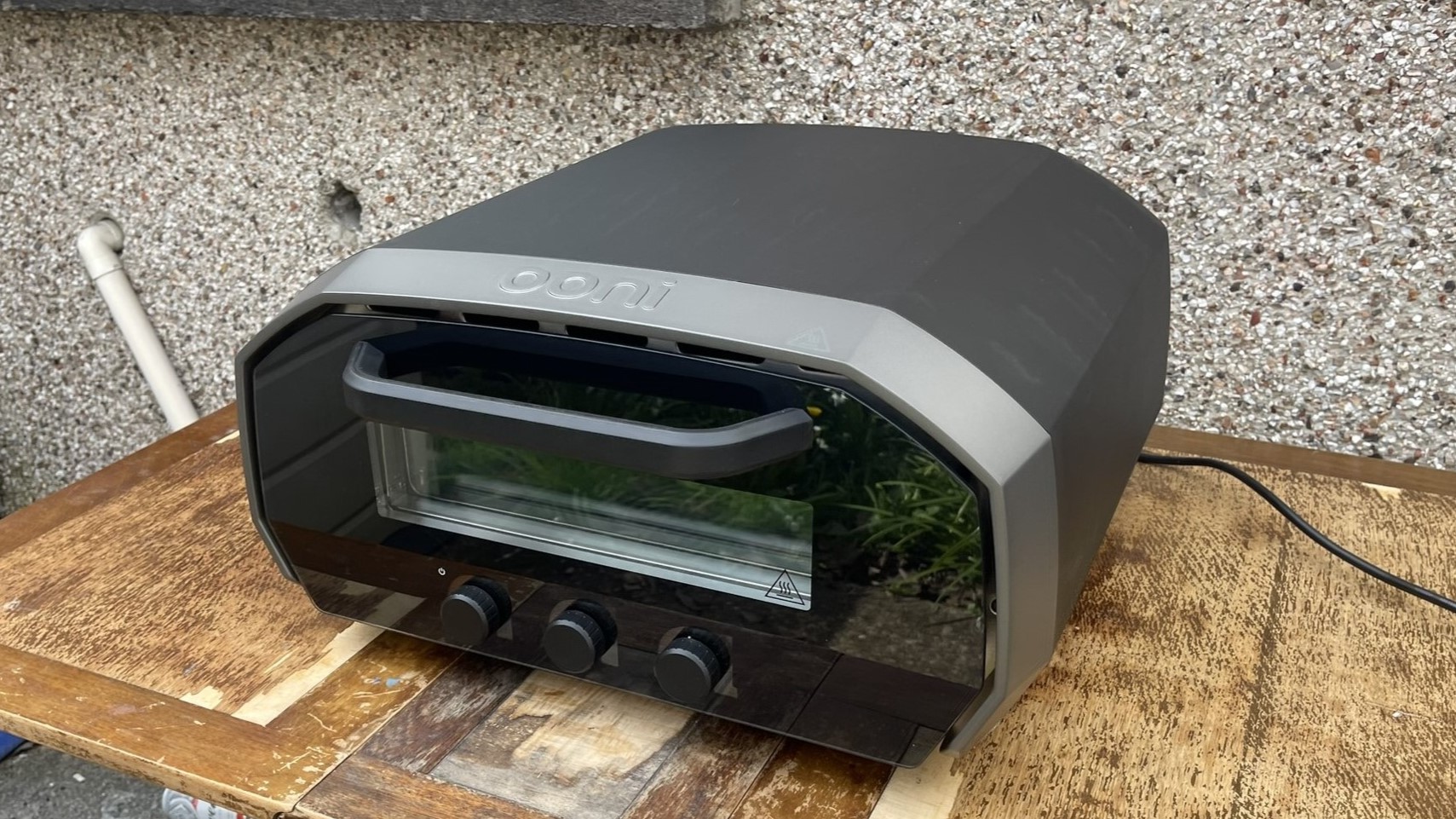
The pizza oven is controlled using three dials: timer, temperature, and balance. The balance dial can send heat upwards or downwards depending on what and how you're cooking - which is a great way to make full use of electric capabilities.
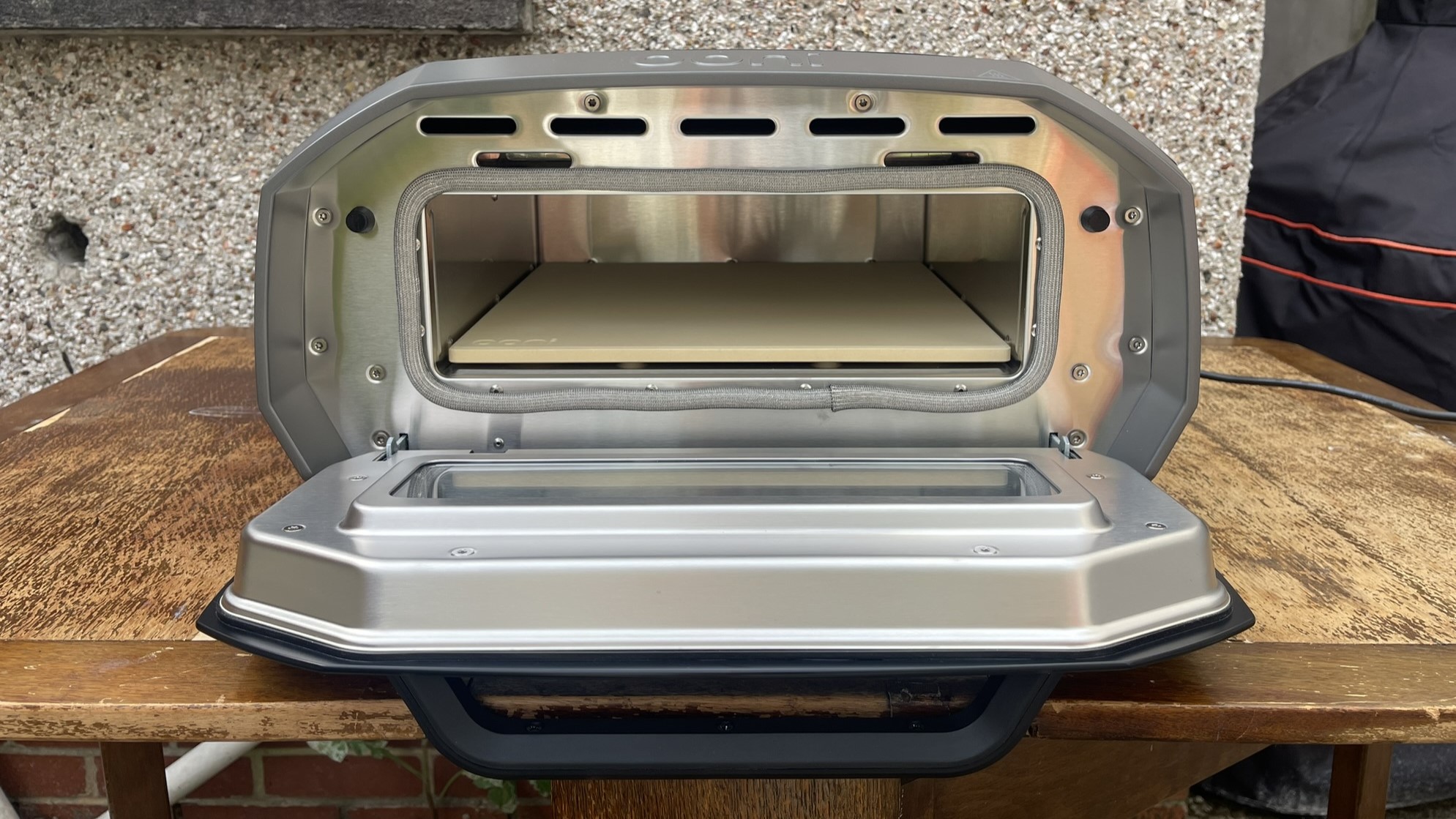
Once powered on, you'll see a light turn on inside the oven through the door's glass window. This makes it super easy to see what's inside, even when baking at high temperatures. It's also worth noting the oven's incredible heat retention: even at 850° F, you can touch the Volt 12's exterior. I wouldn't recommend keeping your hand on it for more than a second or two, but it's impressive how indoor-suitable it really is.
The Volt 12 will emit gentle beeping sounds for various actions, like when the desired temperature has been reached or when the timer has ended. It is, without a doubt, an incredibly easy and responsive machine to use, and you won't need any previous pizza making experience to be able to use it straight out the box.
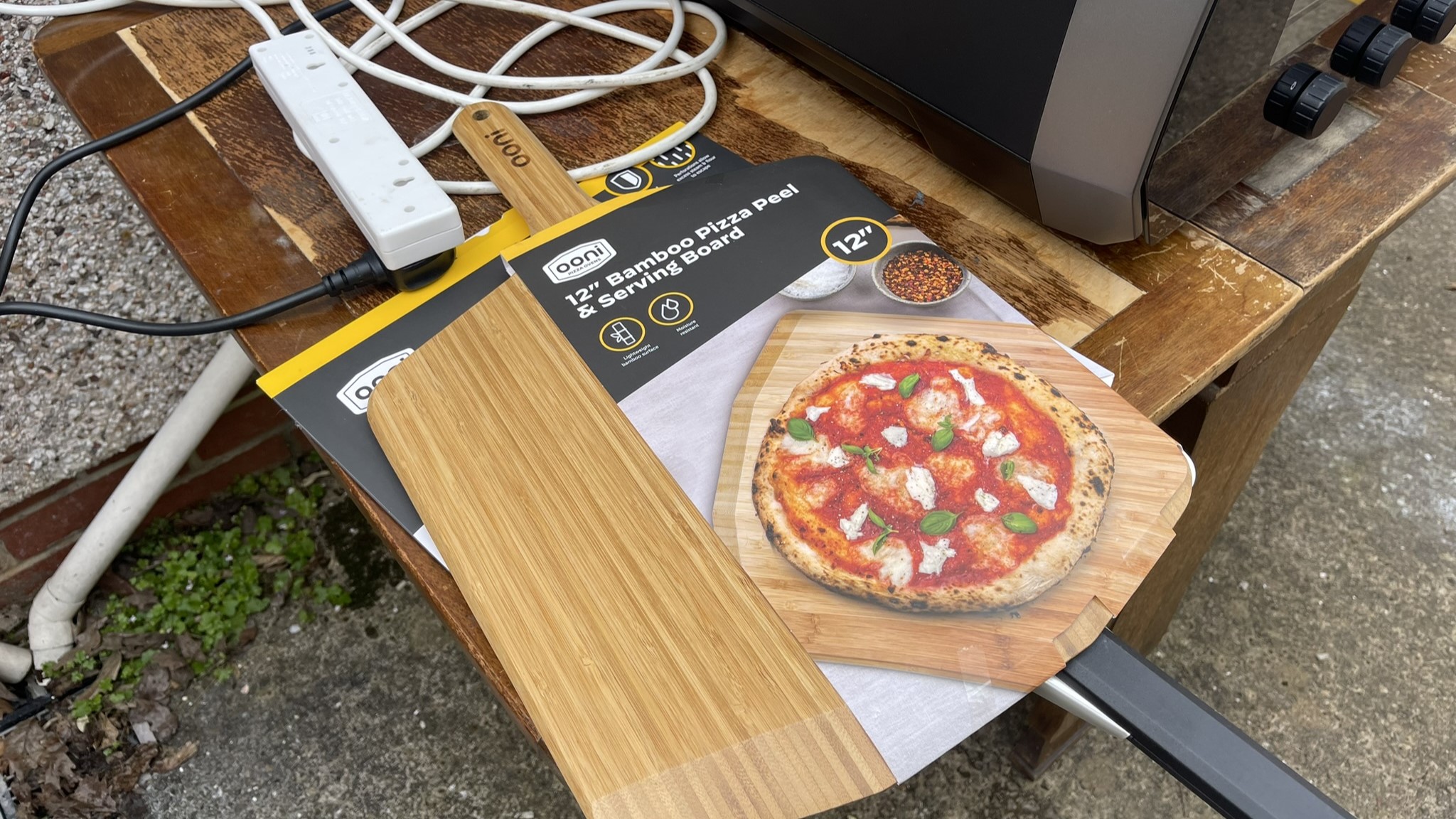
After unpackaging the perforated pizza peel, pizza cutter, and bamboo serving board, I noticed the quality straight away. They are all well-made using strong materials and have a balanced weight to them. It's reassuring to know that Ooni decided not to cut corners when it came to accessories.
Score: 5 out of 5. Hugely impressive design.
Ooni Volt 12: Key specs
Ooni Volt 12: Performance
Now for the big one: how well it cooks. The Ooni Volt 12 can fit pizzas of up to 30cm, and the spec says that it can cook a pizza in just 90 seconds.
The first test pizza was a classic margarita, made using our own homemade dough and pizza sauce. After sliding it onto the cooking stone and setting a 90-second timer, we all watched through the glass window as the cheese bubbled and the crust hardened.
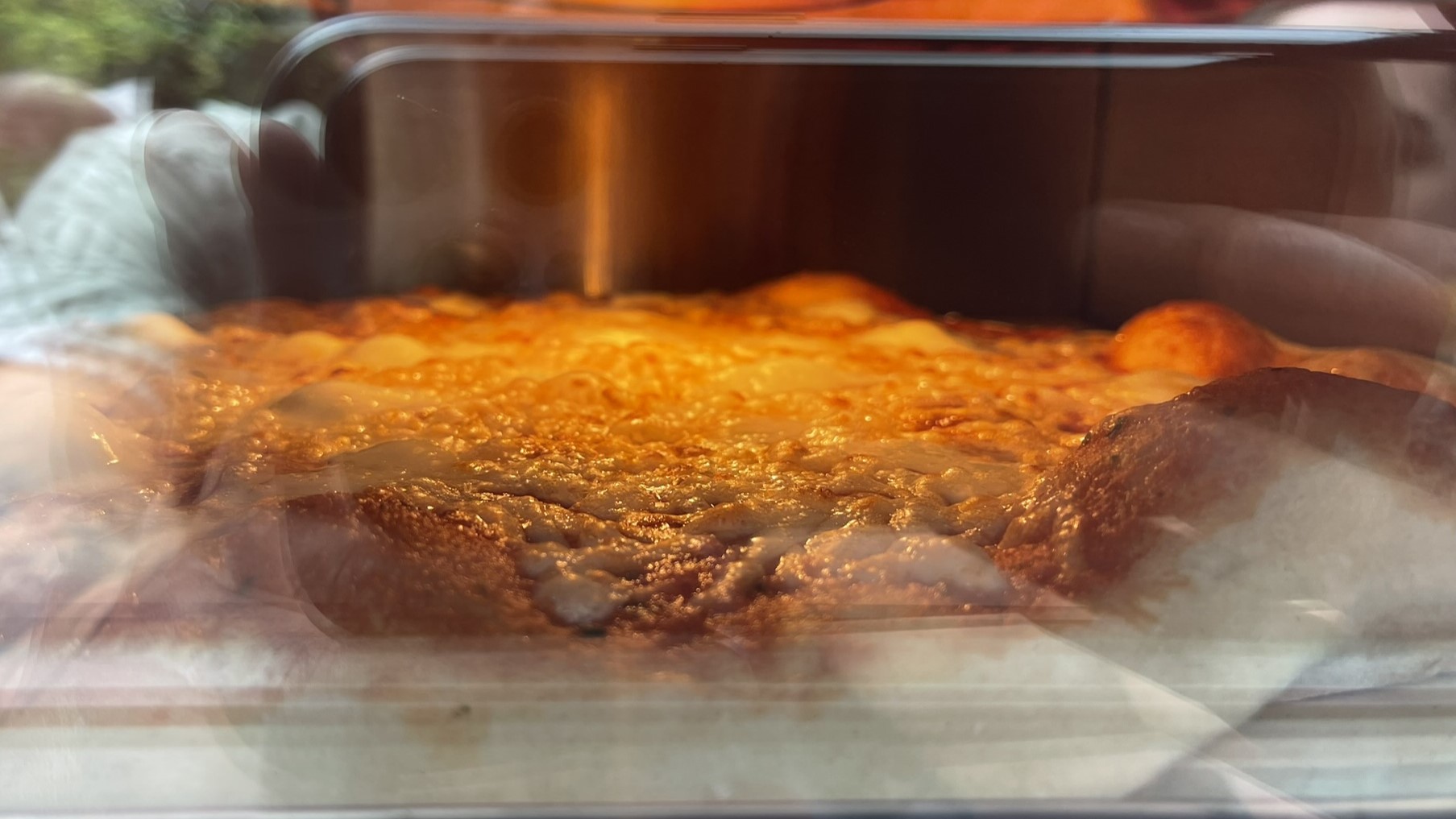
It wasn't quite ready after 90 seconds, but after cooking it for a tiny bit longer, it came out beautifully. It was slightly more cooked on one side than the other, but Ooni (and, granted, most pizza chefs) recommend rotating your pizza frequently to prevent this. All in all, this was a stonebaked pizza, cooked perfectly without any fire or fuel.

Before moving onto experimenting with toppings, I tested a garlic pizza bread. Made with garlic butter, basil, grated mozzarella and shaved parmesan, the garlic bread took a similar amount of time to cook than the margherita, and came out exactly as we'd hoped.

It was when we started moving onto other pizzas that we came across some setbacks. I want to prefix this by saying: these aren't necessarily faults of the Volt 12, but rather lessons learned from handling an incredibly hot (but electronically-powered) cooker.
When toppings fall off the dough in a pizza oven, the best-advised next move is to leave them to burn away. This happened when cooking a meat feast pizza, but then came the realisation that this isn't a pizza oven that uses fire. The cheese and meat (and their oils) lit on fire very quickly and soon the inside of the oven was burning and I could start to see burn marks on the glass door.
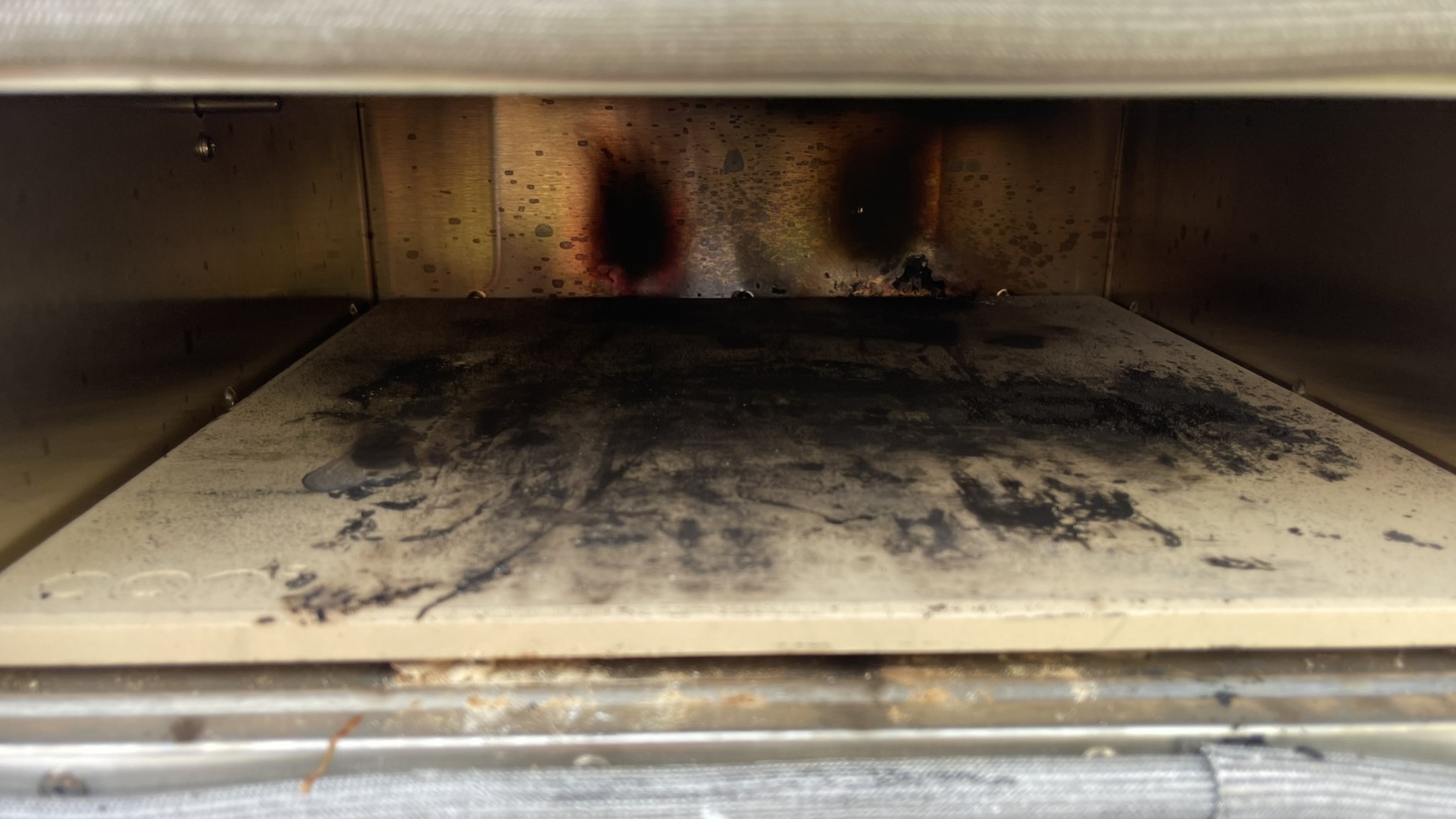
This wouldn't be a problem with a traditional pizza oven, but I was unsure whether the Volt 12 was equipped to handle flames in this way. Luckily, I now know that it can, except the interior is permanently marked now because of it (although this is an inevitability with pretty much any pizza oven). The real loss was the burnt meat feast pizza as a result (although, it still tasted delicious minus the charred parts).
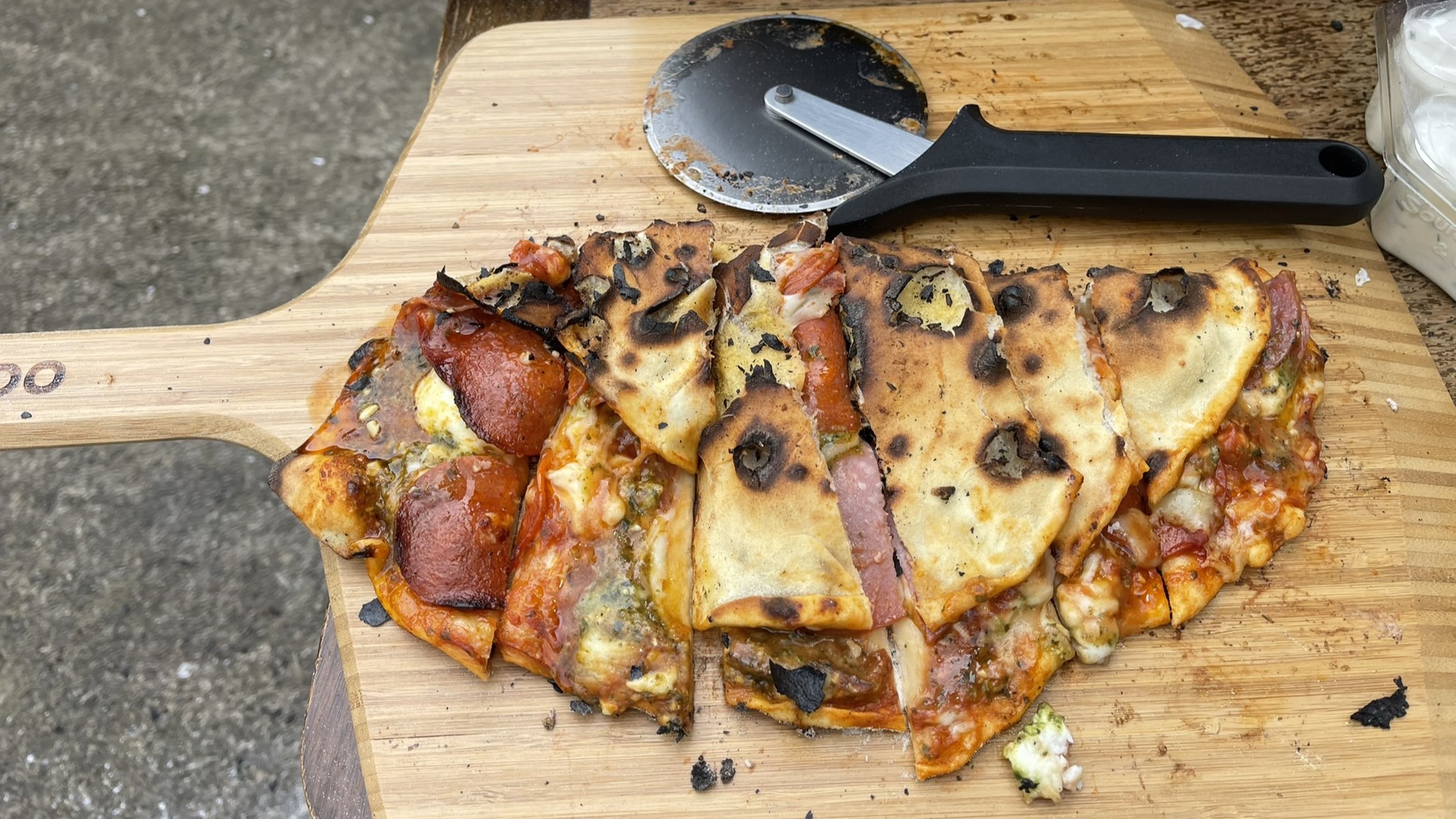
I've made plenty more pizzas with the Volt 12. No matter the variation, the Volt 12 cooked them all exactly how you'd expect a traditional pizza oven would. Indoor electric pizza ovens typically aren't able to perform to this level, but the Volt 12 cooks as well as any outdoor oven without the effort required from buying and using fuel. I never thought I'd be cooking restaurant-quality pizzas using just an on switch and some dials.
From cold meats like prosciutto, salami, serrano ham, and pepperoni, to a mix of veg like mushrooms, red onion, sweetcorn, olives, fresh chilli - the Volt 12 cooked them all to perfection. I've tested cheeses like mozzarella, goat's cheese, parmesan, and blue cheese; and I've even tried pesto, anchovies and French saucisson sec. At no point did anything cook unevenly, nor need any adjusting to get right.

One thing I've found is that the bottom of pizzas can become heavily charred after a long session. We learned this after cooking 6 or so pizzas in a day, and noticed that the entire bottom surface of a pizza was black. We gave the stone a scrape and adjusted the heat balance to the top of the oven, and the next pizzas were ok. There are certainly lessons to learn while using the Volt 12, but I wouldn't say that these are design flaws. If anything, being able to adjust the heat's positioning is a unique fix that many pizza ovens can't do - let alone using a dial.
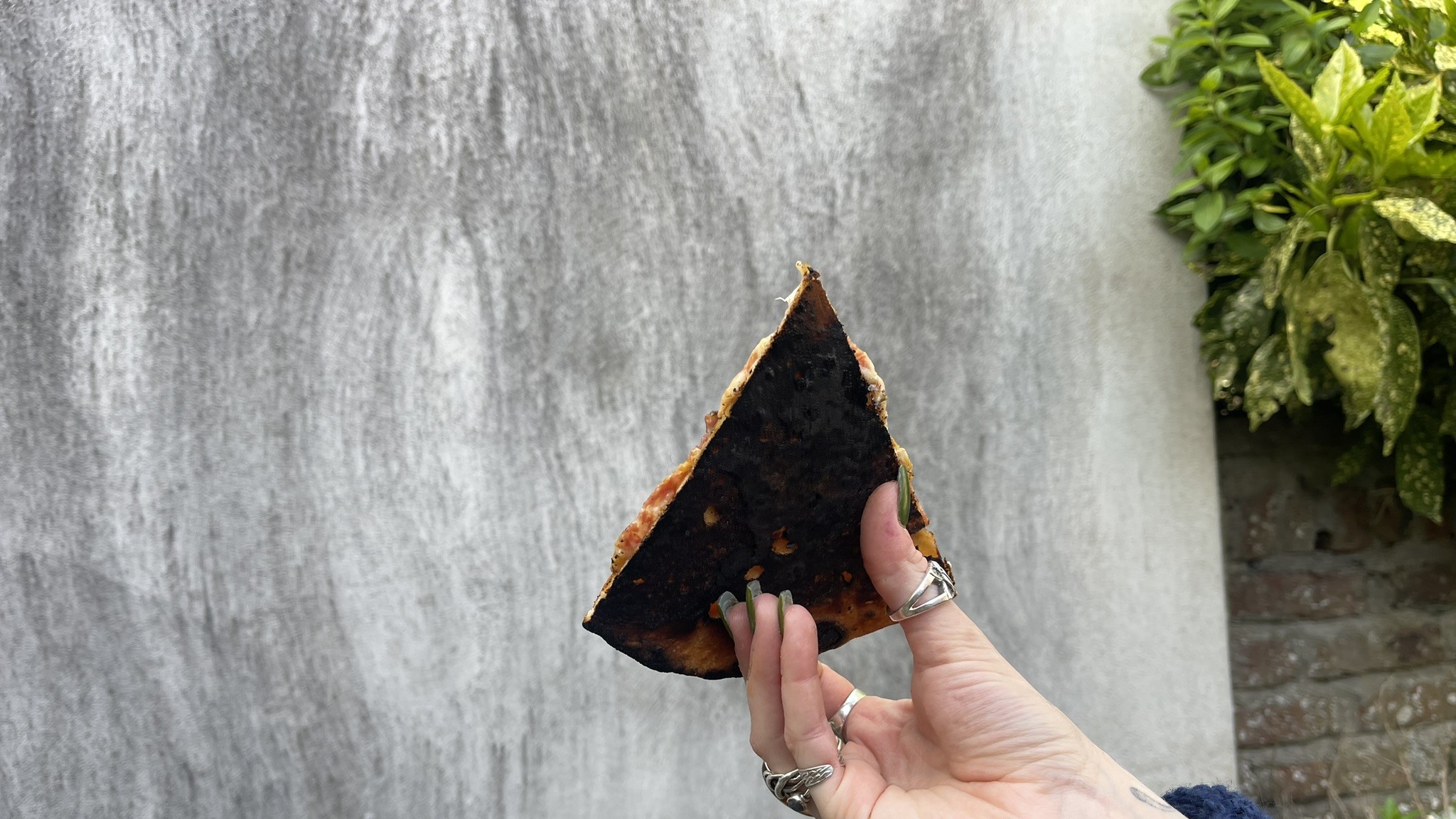
It's also great to know that the oven doesn't take too long to cool down, considering the high temperatures it reaches. Ooni recommends waiting at least 10 minutes for the fan to cool down before unplugging it, and in total it probably took around 30 minutes for the oven to be able to be put away.
All in all, the Ooni Volt 12 is an easy-to-use pizza oven. Its user-friendly features make it a breeze to make good-quality pizzas with - even for those with no pizza baking experience. I'm looking forward to seeing what else can be cooked inside this capable machine, as the cookbook includes recipes for many, many non-pizza related dishes.
Score: 5 out of 5. Outstanding performance. A bit of fine tuning is needed, but no more than any other pizza oven.
Ooni Volt 12?
Buy it if...
Don't buy it if...
Ooni Volt 12 compare?
The Volt 12 is the most expensive Ooni pizza oven, followed closely by the Ooni Karu 16 Multi-Fuel, that can cook 16-inch pizzas with wood, charcoal or gas. The Volt 12 is limited to 12-inch pizzas, like the Ooni Karu 12 and the Ooni Koda 12, but it doesn't require any fuel at all to operate.
This, I believe, is the true advantage of the Volt 12. With most appliances this convenience would normally feel like a sacrifice, but it cooks pizzas to a similar level to fuel-based ovens regardless.
Other electric pizza ovens, like the Cuisinart Indoor Pizza Oven, have similar indoor functionality, but will be unlikely to match the cooking power of the Volt 12. The Westinghouse Electric Indoor/Outdoor Pizza Oven (at Home Depot) can reach similar temperatures as the Volt 12, but hasn't received the best online reviews so far.
How I tested the Ooni Volt 12
I've had the Ooni Volt 12 for over a month, and in that time have tested a variety of pizzas with a variety of toppings.
The big testing session was with a group of my closest food-loving friends, where everybody assembled 1 or 2 pizzas each to see what the Volt 12 can handle. It was also an opportunity to see how well the oven fared when it came to outdoor hosting (which, I believe, is one of the most important aspects). Like the rest of the Volt 12, it didn't disappoint.
See more about how we test.







